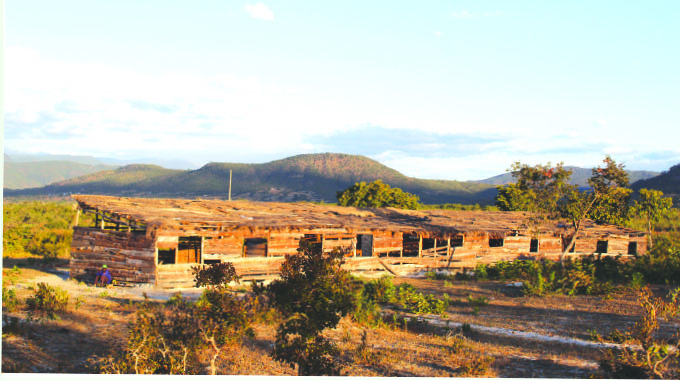
The ManicaPost

Tendai Gukutikwa Post Correspondent
FORM One student, Ifanosi Karera, can’t wait to go back to school despite the sorry state of his rural school in Kute, Nyanga.
Just like any other student across the world, he is restless and continues pestering his father about when schools will re-open in light of Covid-19.
However, Ifanosi is very lucky as he won’t have to trudge the long distance to school since a satellite school that is nearer home has been established.
His brother, Admire, who is now in Form Four at the same school wasn’t that lucky.
During his first two years of secondary education, Admire had to walk about 50km to and from Kute High School every day.
Others would walk equally lengthy distances to Regina Coeli, Bumhira and Kambudzi High Schools. During those trips, Admire revealed that he and his peers were exposed to drug and alcohol abuse, as well as sexual abuse that often led to child marriages.
This broke Ward 13 Councillor Steven Karera’s heart, and he initiated plans for a satellite school to be set up. The community helped build the school.
Unicef and Mercy Corps are currently constructing toilets at the school, while the Diocese of Mutare Community Care Programme (DOMCCP) helped fund the construction of the school’s two-roomed administration block by paying school fees for six girls.
Nyamubarawanda Secondary School, a satellite of Kute High School, now has an enrolment of 78 students, with Form One to Four classes.
Although the floorless and windowless classrooms is just a makeshift wooden cabin with grass thatching and movable boards and benches, it has lessened the burden for students as they now walk 4km or less to and from school.
Enduring the wintry and rainy days in the satellite classrooms is nothing compared to the long distances that were previously suffered by students.
“I was inspired to take the bull by its horn after seeing our children walking 25km to and from school. Fellow villagers helped and are still helping. We are currently building eight classrooms. The community moulds the bricks, while local builders help with the construction.
“We were having problems with early child marriages as our children were opting for bush boarding and sex work to raise money for their rentals. Such cases have been reduced as we now have a school nearby,” said Councillor Karera.
Mrs Abigail Muguti, a parent of the school’s two students said she is glad the satellite school was opened as her children had stopped going to school.
“The nearest schools are 25km away but most of us could not afford to pay the school fees as they are very expensive.
“At Nyamubarawanda Secondary School, we only pay $150 per term, which is reasonable. While the children face challenges here and there at the satellite school, at least they are in school and they do not have to walk long distances to get to there,” said Mrs Muguti.
Manicaland Provincial Education Director, Mr Edward Shumba said the Ministry of Primary and Secondary Education hopes that the students will be learning in a conducive environment in the near future.
He said the ministry will engage its partners to get assistance for Nyamubarawanda Secondary School.
“Together with the local authority, we strive to see all students learning in conducive and healthy environments,” said Mr Shumba.



